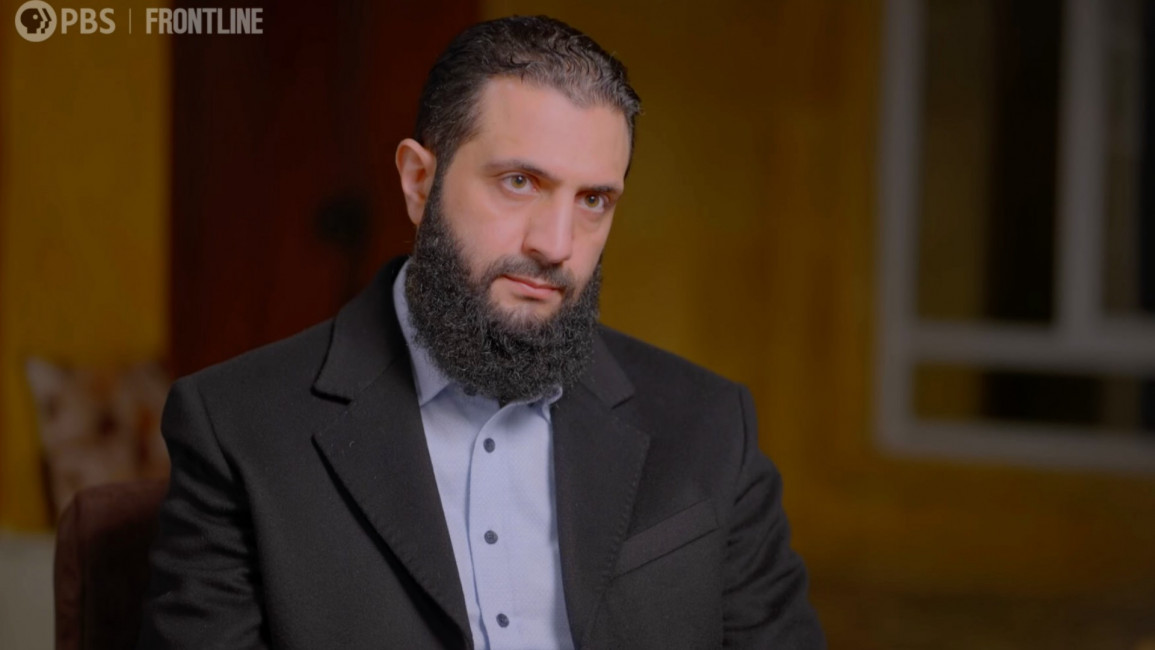HTS terror designation 'unfair', Jolani claims in first interview with US journalist
The HTS leader, who currently has a $10 million US State Department bounty on his head, spoke to PBS reporter Martin Smith in Idlib in February.
"First and foremost, this region does not represent a threat to the security of Europe and America," Jolani told Smith in the interview, which was filmed as part of a Frontline documentary on his involvement in Syria's war. "This region is not a staging ground for executing foreign jihad."
When asked by Smith about why the US and other states should rescind their designation of HTS as a terror organisation, Jolani reiterated that the group's association with Al-Qaeda "had ended".
"We didn’t say we want to fight," he added, clarifying that his statements that were critical of Western policies towards the Middle East.
Asked about the issue of torture, Jolani flatly denied allegations that his group abuses those detained by HTS in Idlib.
|
||
"There is no torture. I completely reject this," Jolani said, adding that rights groups would be allowed to visit the detention facilities.
"Human rights organisations could come and inspect the prisons or take a tour," he said. "Our institutions are open to anyone. Organisations are welcome. Or people who are interested in this matter can visit and assess the situation. Are things being done properly or not?"
Jolani, who hails from the southwestern Syrian city of Deraa, led the Al-Nusra Front, Syria's Al-Qaeda franchise, until 2017 when he publically distanced himself from the international terrorist network.
HTS seized control of most of Idlib in 2019, after a series of offensives against rebel groups in the area. HTS has also clashed with jihadist formations in Idlib, such as Hurras Al-Din.
Read also: Syria Insight - Jolani's outreach campaign highlights HTS' many challenges in Idlib
Despite breaking ties with Al-Qaeda, HTS has earned a hardline reputation through accusations of human rights abuses, including the kidnapping, torture, and murder of civilians.
In recent years, Jolani has engaged in a series of PR campaigns to appeal to the local population in Idlib, and attempted to distance himself from his jihadist roots.
Initial reports about his interview with Smith earlier this year were widely shared on social media, after Smith shared an image of their meeting on Twitter.
After the image of Jolani and Smith was widely shared on Twitter, the State Department's "Rewards for Justice" Arabic-language page on Tuesday issued a direct warning to the militant leader.
Follow us on Facebook, Twitter and Instagram to stay connected


![The White House Correspondents' dinner is seeing renewed scrutiny amid Israel's war in Gaza. [Brooke Anderson/The New Arab]](/sites/default/files/styles/image_330x185/public/2024-04/IMG_5497.jpg?h=71976bb4&itok=iSygAqbR)